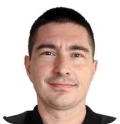Bridging the gap between web2 and web3
Our protocol research and development team consists of tech-savvy blockchain and financial professionals who specialize in Technical Due Diligence (TechDD), DeFi Research, Solidity Smart Contract Development, Full-stack Engineering, and Data Solutions. Our team provides these services to institutional clients who are entering or expanding in the blockchain and DeFi space.
Skills that you will use and learn in the DeFi Research & Development team include:
DeFi Research
• Academic writing
• Business writing
• Technical writing
• How to perform the research professionally and factually
• Discover and detect valuable information from Crypto Twitter, Community Discord, and Protocol Forums
• Research tools (Parsec, Nansen, Dune)
Technical Due Diligence
• How to investigate and evaluate various types of projects based on data and publicly available information
• How to see the business value in proposed products & protocols
• What are the most common Tokenomics models, and what are their principles
• Understand best practices of Risk Management
• How to communicate with internal & external stakeholders
Data Solutions
• Building data analytics tools while using on-chain and off-chain data (Clouds, SQL, Python, data scrapping, data standardization, data orchestration, various blockchains, DeFi Lama, Elastic)
• Data visualization (Kibana, Metabase, Graphana, Dune Dashboards, Nansen Dashboards, Parsec Dashboards, Google Sheets)
• Data integration from external sources (REST and non-REST APIs, data feeds, data parsers)
• Data Infrastructure set-up (Clouds, VMs, DBs)
Mentoring, leadership, and coaching
• 1:1 session with more senior Analysts and Researchers
• Continuous, open, and transparent feedback based on facts and quantitative factors
• Workshops, brainstorming, and design team sessions
• Regular team meetings to keep the information flow smooth and stable
Smart Contract Development
• Solidity, Cairo, Truffle, Hardhat, Ganache
• ERC-20, ERC-721, and ERC-1155 Token Design
• Decentralized Finance (structured products, derivatives)
• SDLC or Software Development Lifecycle
• Software engineering best practices
• Agile methodology
• Code review techniques
What are the requirements and pre-requisite to apply?
We are looking for students and recent graduates with a strong background in software engineering, computer science, mathematics, financial mathematics, or quantitative finance.
Previous knowledge in any of the following is helpful:
• DeFi AMM (automated market maker)
• Derivatives pricing (Options, Black Scholes, Futures, Swaps)
• Stochastic calculus
• Algorithms
• Cryptography
• Ethereum
But above all, we look for passion and hunger to work in the blockchain, Ethereum, and DeFi space.
.svg)








.webp)
.webp)
.webp)
.webp)
.webp)
.png)
.webp)
.webp)
.webp)
.webp)
.webp)









.webp)
.webp)
.webp)
.webp)
.webp)

.webp)
.svg)
.svg)

.png)
.png)
.png)
.png)
.png)
.png)
.png)
.png)
.png)
















.webp)
.webp)
.webp)
.webp)
.webp)
.webp)




.png)










